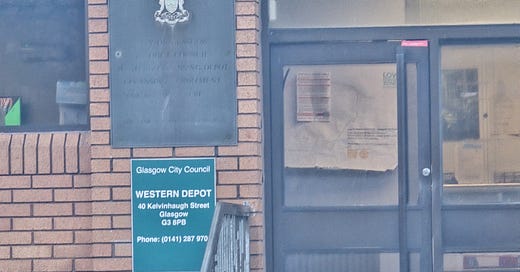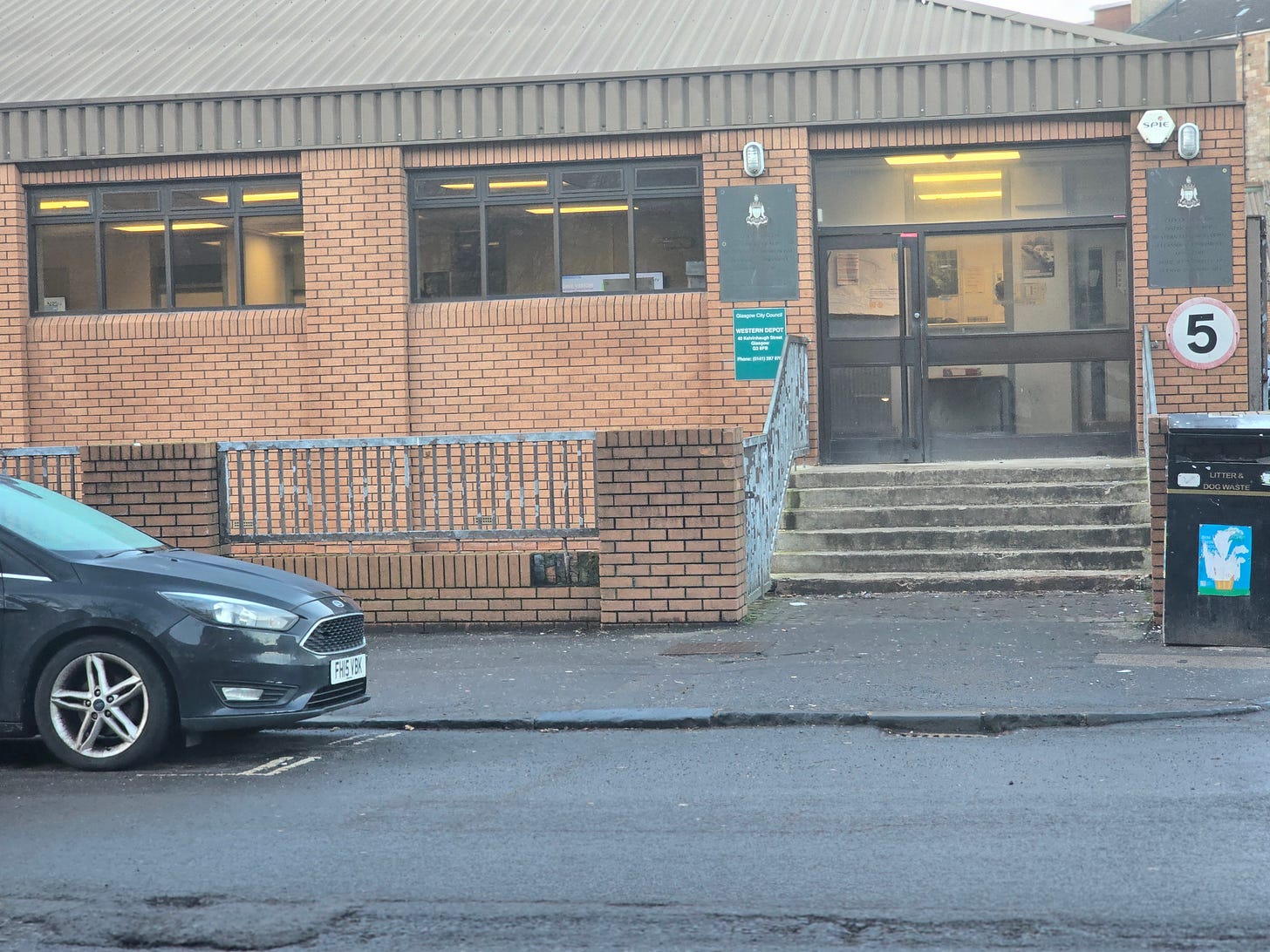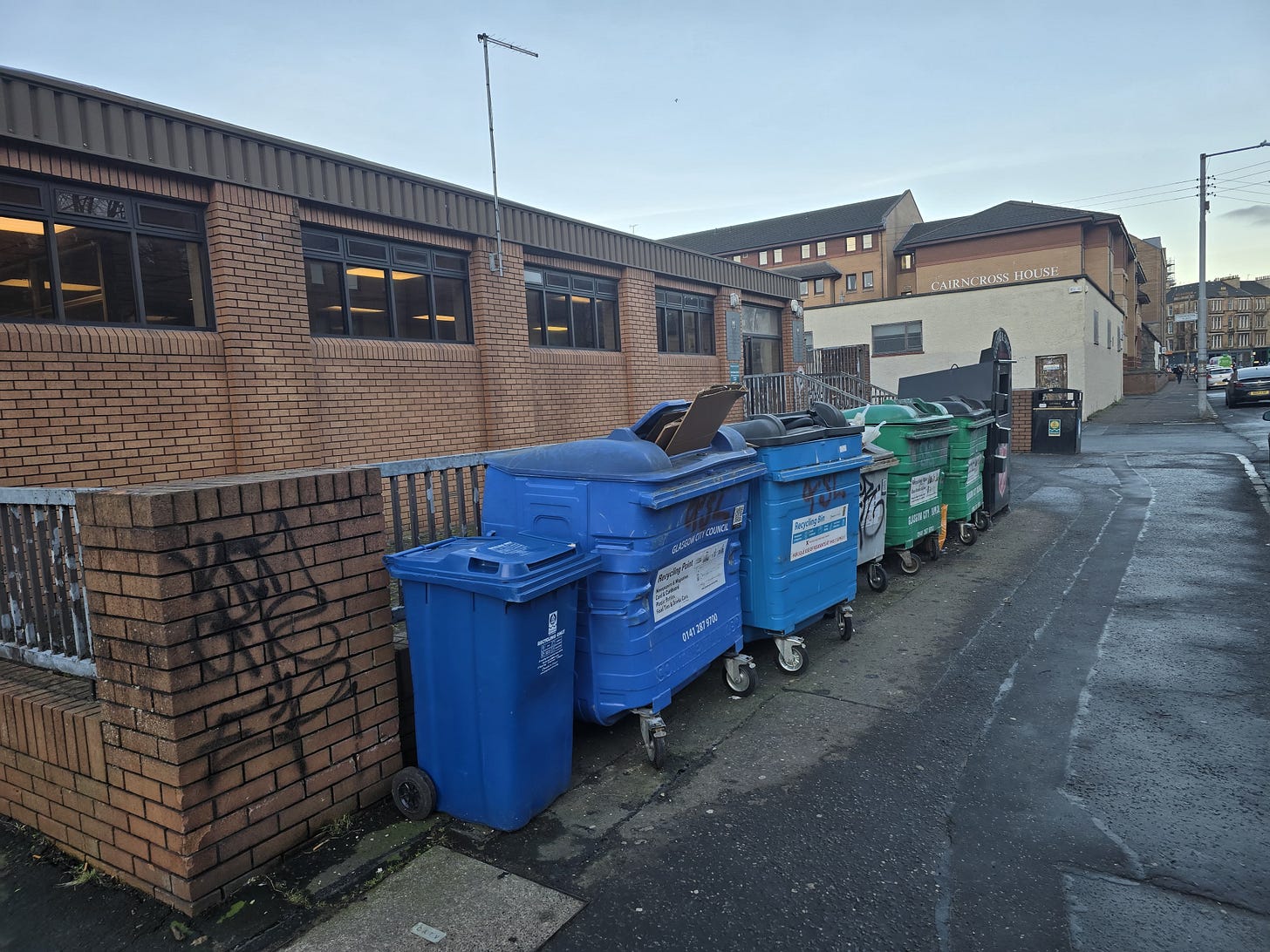The Chris Mitchell Opinion - Glasgow’s Cleansing Depots Under Threat: A Crisis for Workers and Communities
Possible Closure of Key Depots: Western Depot in Kelvinhaugh Street, St Rollox, Eastern Depot (Dalmarnock) and Blochairn
Exclusive by Chris Mitchell, GMB Union Leader
Glasgow City Council is planning a major rationalisation of cleansing depots over the next three to four years, a move that could see the closure of several historic facilities across the city.
The council’s aim is to reduce the number of depots to four, concentrating operations in Polmadie, Shieldhall, Dawsholm, and a new super facility in Queenslie, set to open in the next few years.
However, this decision has serious implications for both workers and residents.
Depots at risk of closure include the Western Depot in Kelvinhaugh Street, St Rollox, Eastern (Dalmarnock), and Blochairn.
These facilities currently play a vital role in waste collection and recycling, handling blue bins for cardboard and paper, as well as brown bins for garden and food waste.
The closure of Blochairn, for instance, will shift recycling operations to the yet-to-be-completed Queenslie site.
One major concern is the sale of the Western Depot, a prime piece of land in the west end where student accommodation has been rapidly expanding.
This depot has been in operation since 1984 and has been a cornerstone of waste management for the area.
At risk? The Western depot in the west end’s Kelvinhaugh Street. All pictures Gary Fanning
Similarly, Dalmarnock Depot, located behind the train station, has already faced closure attempts in the past, only to be saved by strong community opposition.
Residents of Dalmarnock and Bridgeton were clear—they did not want their services disrupted by a move to Queenslie.
The proposed closures come at a time when waste collection services are already under pressure.
Bulk uplift charges, changes to collection schedules, and reductions in street sweeping have led to a decline in overall service quality.
If these closures proceed, it could push workers towards industrial action. GMB members are prepared to ballot if necessary to protect their jobs and the quality of service delivered to Glasgow residents.
The council’s approach has been staggered, attempting to move refuse collectors from Dalmarnock and Western to Queenslie in early March, only to halt the process following union intervention.
While the moves are currently on hold, there is little doubt that they will resurface in the near future.
The reality is that the four remaining depots require significant investment. Some of these facilities are over 40 years old, run-down, and in desperate need of repair. Without this investment, the closure of additional depots will put immense strain on workers and services.
Beyond the operational challenges, there are real financial burdens for workers.
Many have budgeted their travel costs based on their current depot locations. Moving to facilities further away will mean higher transport costs—whether by bus, train, petrol, diesel, or electric vehicle.
Despite repeated requests, the council has refused to provide travel assistance for essential workers. At a time when the cost of living crisis is hitting hard, this additional financial strain is unacceptable.
Service delivery will also be severely impacted. Increased travel times for workers will mean delays in bin collections, more disruption for residents, and a decline in street cleanliness.
The west end and east end, already struggling with service reductions, will face further deterioration if their local depots close.
The council claims this restructuring is about improving services, but history suggests otherwise. Every previous policy change has led to worsening conditions, with overflowing bins and rising rat populations becoming a common sight across Glasgow.
There is growing scepticism over the council’s justification for these closures.
While they claim the revenue generated will be reinvested in depot upgrades, there is little confidence that this will happen.
The risk to Glasgow’s commercial waste contracts could put 100 jobs in jeopardy, with workers facing redeployment. If revenue from these sales is not reinvested in the service, the consequences will be devastating.
At its core, this issue affects everyone in Glasgow.
Regardless of where you live or your political stance, we all want clean streets and efficient waste collection.
The people of Partick, Kelvinhall, Yorkhill, Anderston, Whiteinch, Dalmarnock, and Bridgeton depend on these depots for essential services. If closures go ahead, residents must brace for even more disruptions.
Glasgow City Council needs to be honest with the public. Are these closures really about improving services, or are they driven by financial pressures and property deals?
It’s time for Glaswegians to make their voices heard. We urge residents to speak out, challenge these plans, and demand a better solution.
This is not just about buildings—it’s about the future of our city’s waste services.
If we don’t act now, we risk losing essential infrastructure that keeps Glasgow clean and functional.
The choice is clear: fight for our depots, or face the consequences of a city struggling to cope with waste.







Glasgow Council are aiming to remove all residential wheely bin refuse collections and instead have everyone using communal dumpsters on main roads. Wonder if this is related?
Concern about council not replacing public litter bins after these have been destroyed by fire